The aim of this guide is to provide information to help transgender women of all ages advocate for their sexual health and well-being.
Tres Cher, Take Charge was produced by the T’Cher Louisiana team in partnership with the T’Cher community advisory board made up of stakeholders and leaders from the New Orleans transgender community. T’Cher stands for “Trans Community Health Education and Research.” The name of our team, which is made up of researchers, social workers, and outreach specialists, plays on the French/Cajun word “Cher” meaning ‘dear’ or ‘darling’ and the notion of the bond of trust we have formed with the individuals who have kindly shared their stories with us, whose words and ideas provide the tapestry that holds this guide together.
Tres Cher, Take Charge aims to provide insight and information to transgender women of all ages so that they can better advocate for their sexual health and well-being. Drawing on extensive qualitative and survey research with transgender women and with medical and behavioral health care providers who work for transgender women throughout Louisiana, the guide aims to reflect the multi-faceted health challenges and needs faced by transgender women in our state. It is meant to be a resource for transgender women as well as a resource for their families, friends, and partners.
The research that influenced the production of this guide, the findings of which are presented in the final section, was funded by the Centers for Disease Control and Prevention, Division of National HIV Behavioral Surveillance and by the Louisiana Office of Public Health STD/HIV/Hepatitis Program. The creation of the guide itself—the web design and photography—was made possible by a grant from the Louisiana Office of Public Health through the Centers for Disease Control and Prevention.
Follow us on Instagram!
Yall this is the last week for recruitment with T’Cher!!! If you are interested in joining, or know someone who is wanting to join this is the week to do it!!! 💘💘
⭐️
#TCherTakeCharge #TCherLouisiana #TransRights #TransHealth #TransHealthCare #NewOrleans #BatonRouge #TransWomen #TransPride #TransLivesMatter #LGBT #LGBTQ🌈 #LGBTQ #Louisiana #Health #PrEP

Yall this is the last week for recruitment with T’Cher!!! If you are interested in joining, or know someone who is wanting to join this is the week to do it!!! 💘💘
⭐️
#TCherTakeCharge #TCherLouisiana #TransRights #TransHealth #TransHealthCare #NewOrleans #BatonRouge #TransWomen #TransPride #TransLivesMatter #LGBT #LGBTQ🌈 #LGBTQ #Louisiana #Health #PrEP
Happy Valentine’s Day everyone! We hope you have a fun safe day, we want to remind everyone that there is only 14 days left for recruiting!!! Tell everyone to call T’Cher and we will do a screener to see if your eligible❤️💕❤️
⭐️
#ValentinesDay #Trans #TransRights #Study #Medical #TransHealthCare #TCher #TCherTakeCharge #PrEP #TCherLouisiana #LGBT #LGBTQ🌈 #NewOrleans #LoveisLove #Pride #Louisiana #Valentines #instagood

Happy Valentine’s Day everyone! We hope you have a fun safe day, we want to remind everyone that there is only 14 days left for recruiting!!! Tell everyone to call T’Cher and we will do a screener to see if your eligible❤️💕❤️
⭐️
#ValentinesDay #Trans #TransRights #Study #Medical #TransHealthCare #TCher #TCherTakeCharge #PrEP #TCherLouisiana #LGBT #LGBTQ🌈 #NewOrleans #LoveisLove #Pride #Louisiana #Valentines #instagood
Today February 13th is the anniversary of Christen Jorgensen returning to America after being one of the first US citizens to get gender-affirming surgery. She actually got a lot of media attention after the return, and grew a celebrity buzz about her. A true trans icon and trailblazer 💕🏳️⚧️💕
⭐️
#TCher #TCherLouisiana #TCherTakeCharge #ChristenJorgensen #Trans #TransIcon #LGBTQHistory #LGBTHistory #TransRights

Today February 13th is the anniversary of Christen Jorgensen returning to America after being one of the first US citizens to get gender-affirming surgery. She actually got a lot of media attention after the return, and grew a celebrity buzz about her. A true trans icon and trailblazer 💕🏳️⚧️💕
⭐️
#TCher #TCherLouisiana #TCherTakeCharge #ChristenJorgensen #Trans #TransIcon #LGBTQHistory #LGBTHistory #TransRights
TIP offers free hot meals for the trans community every weekend! Visit our website to sign up for delicious homemade food by @berniethenolacorgi Spread the word, volunteer, and donate so we can keep the hotties fed!
Art by@tobi.bologni

TIP offers free hot meals for the trans community every weekend! Visit our website to sign up for delicious homemade food by @berniethenolacorgi Spread the word, volunteer, and donate so we can keep the hotties fed!
Art by@tobi.bologni
Anyone over this snow and cold? Or you want it to stay? T’Cher Take Charge team has been taking it slow enjoying this historic event in New Orleans. But Monday we will be back in action!! If your still interested in joining, let’s see if your eligible!! Call us today: 504-894-2738
🏝️🌊☀️
⭐️
#TCher #TCherTakeCharge #NewOrleans #Louisiana #PrEP #Health #TransHealth #TransHealthCare #TransRights #LGBTQIA🌈 #Beach #Snow #Snowpocalypse #Ochsner #instagood

Anyone over this snow and cold? Or you want it to stay? T’Cher Take Charge team has been taking it slow enjoying this historic event in New Orleans. But Monday we will be back in action!! If your still interested in joining, let’s see if your eligible!! Call us today: 504-894-2738
🏝️🌊☀️
⭐️
#TCher #TCherTakeCharge #NewOrleans #Louisiana #PrEP #Health #TransHealth #TransHealthCare #TransRights #LGBTQIA🌈 #Beach #Snow #Snowpocalypse #Ochsner #instagood
#TCherTakeCharge is back on @greatdaylouisiana 1/14/25 between 9-10am 💕 Thank you @greatdaylouisiana and @malikontv for having us talk again, join our study today!!
⭐️
#TCher #TCherLouisiana #NewOrleans #Louisiana #TransRights #PrEP #Health #TransHealth #HealthCare #GreatDayLouisiana #Trans #BatonRouge #LGBTQ🌈 #Gay #Fun #instagood

#TCherTakeCharge is back on @greatdaylouisiana 1/14/25 between 9-10am 💕 Thank you @greatdaylouisiana and @malikontv for having us talk again, join our study today!!
⭐️
#TCher #TCherLouisiana #NewOrleans #Louisiana #TransRights #PrEP #Health #TransHealth #HealthCare #GreatDayLouisiana #Trans #BatonRouge #LGBTQ🌈 #Gay #Fun #instagood
You reading that right y’all #TCherTakeCharge is back on @greatdaylouisiana with @malikontv !!! Next Tuesday 14th at 9am on WWLTV Channel 4!! Thank you for having us again to talk about the importance of PrEP and what T’Cher is doing 💕🏳️⚧️💕
⭐️
#NewOrleans #Louisiana #GreatDayLouisiana #GreatDayLouisianaWWLTV #Fun #Trans #TransRights #TransHealth #TCher #TCherLouisiana #Health #PrEP #Louisiana #News #LGBTQ🌈

You reading that right y’all #TCherTakeCharge is back on @greatdaylouisiana with @malikontv !!! Next Tuesday 14th at 9am on WWLTV Channel 4!! Thank you for having us again to talk about the importance of PrEP and what T’Cher is doing 💕🏳️⚧️💕
⭐️
#NewOrleans #Louisiana #GreatDayLouisiana #GreatDayLouisianaWWLTV #Fun #Trans #TransRights #TransHealth #TCher #TCherLouisiana #Health #PrEP #Louisiana #News #LGBTQ🌈
Everyone is a superhero, we appreciate all of you that is a part of our study and who has supported us! We still have a few spots left for the people to join our study!! If you think your eligible and interested in joining #TCherTakeCharge give us a call at 504-894-2738 or message us on social media! If you know someone who would be interested in joining also recommend them to us! And when they sign up and do their first session we will compensate YOU $50!!
Love T’Cher 💕🏳️⚧️💕
⭐️
#TCher #TCherLouisiana #LetsGo #Louisiana #TransRights #TransHealthCare #lgbtq🌈 #Health #Ochsner #PrEP #NewOrleans #BatonRouge #TransRightsAreHumanRights

Everyone is a superhero, we appreciate all of you that is a part of our study and who has supported us! We still have a few spots left for the people to join our study!! If you think your eligible and interested in joining #TCherTakeCharge give us a call at 504-894-2738 or message us on social media! If you know someone who would be interested in joining also recommend them to us! And when they sign up and do their first session we will compensate YOU $50!!
Love T’Cher 💕🏳️⚧️💕
⭐️
#TCher #TCherLouisiana #LetsGo #Louisiana #TransRights #TransHealthCare #lgbtq🌈 #Health #Ochsner #PrEP #NewOrleans #BatonRouge #TransRightsAreHumanRights
Thank you to our T'Cher Community
The transgender women and non-binary individuals whose photos and quotes are featured in this guide are all residents of New Orleans and they have brought a wealth of knowledge and passion to the project. Their contribution and support, along with that of the T’Cher community advisory board, have been invaluable to the development and completion of this guide.
We are grateful to them.















